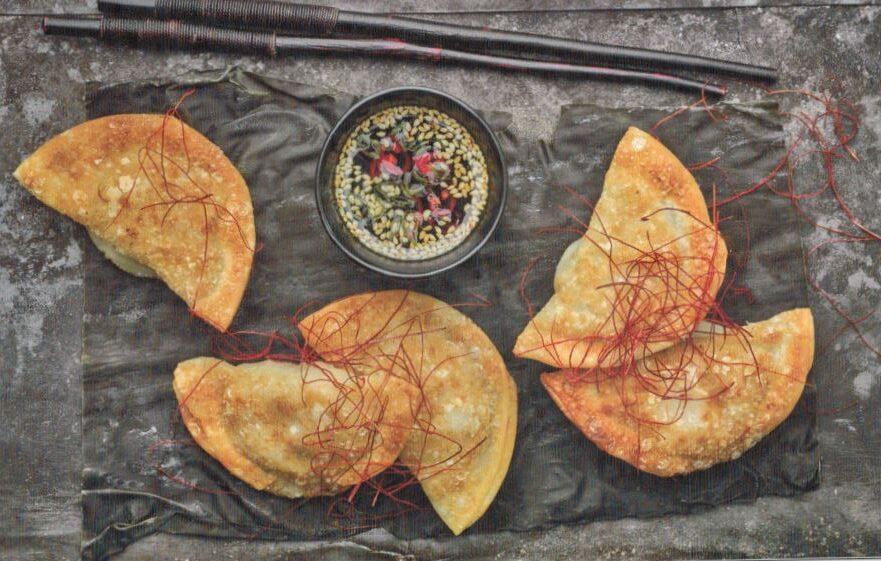Fried Korean Dumplings (Twigim Mandu)
My mom used to enslave my sister and me to make these by the thousands. Plump dumplings neatly lined up on plates and trays covered every surface of the kitchen. I used to only eat the skins, shaking out the meaty insides for my sister. As I got older, I learned to savor those juicy gems as well, but the crispy skins are still my favorite part. If you prefer, the dumplings can be steamed instead of fried. These are a best seller at my restaurant, Jinjuu.Makes about 45 dumplings






